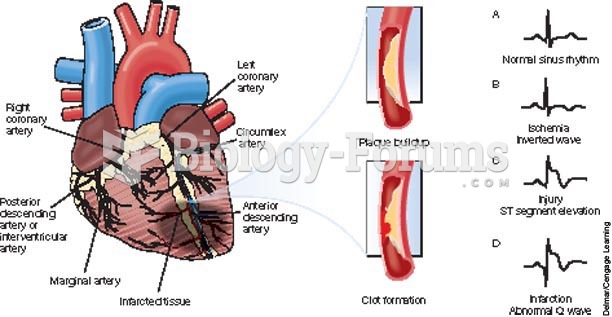Answer to Question 1
c
Answer to Question 2
Appellate courts modify, reverse, remand, or reverse and remand only if they find errorthat is, a mistake made during the trial. If the error is substantial, it is called reversible error by the higher court. If the error is minor, it is called harmless error. This distinction means that an appellate court may find error, but may nonetheless affirm the lower court decision anyway if the mistake was not significant enough to have had a prejudicial effect on the ultimate outcome of the case. Although the contemporaneous objection rule bars an appellate court from considering any claim on appeal to which a timely objection was not made there is one exception to this rule for mistakes that constitute plain error. Plain errors are defects seriously affecting substantial rights that are so prejudicial to a jury's deliberations as to undermine the fundamental fairness of the trial and bring about a miscarriage of justice (United States v. Polowichak, 1986, p. 416).
Even when an appellant preserves a claim by timely objection and the appellate court finds that the trial court erred, the appellate court may still affirm the conviction if it finds that the error was harmless. This harmless error ruleavoids the setting aside of convictions for small errors or defects that have little, if any, likelihood of having changed the result of the trial (Chapman v. California, 1967). If the error was of constitutional dimensions, the appellate court must determine beyond a reasonable doubt that the error complained of did not contribute to the verdict obtained (p. 23). If the error was not of constitutional dimensions, the appellate court must determine with fair assurance after pondering all that happened without stripping the erroneous action from the whole that the judgment was not substantially swayed by the error (Kotteakos v. United States, 1946, p. 765).Most types of error are subject to harmless error analysis, including classic trial errors involving the erroneous admission of evidence (Arizona v. Fulminante, 1991). Some types of error, however, involve rights so basic to a fair trial that they can never be considered harmless, such as conflicts of interest in representation (Holloway v. Arkansas, 1978); denial of the right to an impartial judge (Chapman v. California, 1967); racial, ethnic, or sex discrimination in grand jury or petit jury selection (Vasquez v. Hillery, 1986; Batson v. Kentucky, 1986; J.E.B. v. Alabama ex rel. T.B., 1994); and a failure to inquire whether a defendant's guilty plea is voluntary (United States v. Gonzalez, 1987).







